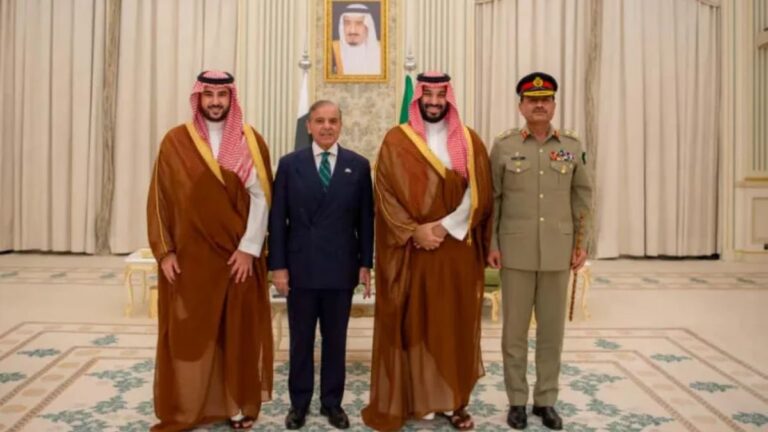
The recent remarks made by Donald Trump against Israeli Prime Minister Benjamin Netanyahu have sparked widespread controversy. Sharing a video on Truth Social, Trump referred to Netanyahu as a “deep, dark son of a b***h.” This surprising statement has raised questions about the dynamics of their relationship and its implications for U.S.-Israel ties. In this post, we analyze the context, reasons, and potential impacts of this development.
What Happened?
Trump, known for his candid and often controversial statements, shared a video on his Truth Social platform. The video included claims by economist Jeffrey Sachs accusing Netanyahu of manipulating U.S. foreign policy to perpetuate conflicts in Gaza and the Middle East. Sachs highlighted that these wars drain American resources without significant benefits for the U.S.
Trump posts video of Jeffrey Sachs condemning Netanyahu for dragging the US into endless foreign wars.
Follow: @AFpost pic.twitter.com/j7j1044WMZ
— AF Post (@AFpost) January 8, 2025
The controversy arises amidst efforts by the Biden administration, Egypt, and Qatar to negotiate a truce between Israel and Hamas. Trump’s sudden criticism of Netanyahu, just weeks before his potential second term as U.S. President, adds complexity to these efforts.
Key Highlights of the Video
- Jeffrey Sachs’ Allegations
- Sachs accused Netanyahu of deliberately instigating endless wars in the Middle East, especially in Gaza, to assert Israel’s dominance.
- He claimed this strategy indirectly entangles the U.S. in these conflicts, affecting its resources and foreign policy.
- Tucker Carlson’s Commentary
- The video also featured journalist Tucker Carlson, who interviewed Sachs.
- Carlson alleged that Netanyahu’s policies since 1995 have aimed at eliminating groups like Hamas and Hezbollah while targeting governments in Iran, Iraq, and Syria that support them.
- Trump’s Perspective
- Trump has repeatedly criticized U.S. involvement in “pointless wars,” suggesting the need to prioritize domestic interests.
- Sharing this video signals his alignment with such critiques, raising questions about his stance on U.S.-Israel relations.
Confusing Signals from Trump
Trump has a history of sharing content that contradicts Washington’s established policies. This video comes at a crucial time when Egypt, Qatar, and the current US administration are working tirelessly to mediate a truce between Israel and Hamas.
Adding to the controversy, Trump’s picks for key positions in his upcoming administration reflect hardline stances on Middle Eastern issues:
- Marco Rubio (Secretary of State) opposes a ceasefire in Gaza, urging Israel to “destroy every element” of Hamas.
- Elise Stefanik (US Ambassador to the UN) dismisses the UN as a “cesspool of antisemitism” for its criticism of Israeli actions in Gaza.
- Mike Huckabee (Ambassador to Israel) rejects terms like “occupied Palestinian territories,” asserting there is “no such thing as a West Bank” or a Palestinian identity.
Trump himself warned that if Hamas does not release American hostages before he assumes office, there will be “hell to pay” in the Middle East.
The Past Relationship: Trump and Netanyahu
Trump and Netanyahu’s relationship has been marked by both collaboration and tension:
- Positive Interactions During Trump’s Presidency
- Recognition of Golan Heights: In 2019, Trump recognized this disputed territory as part of Israel, a significant diplomatic victory for Netanyahu.
- Embassy Relocation to Jerusalem: Trump shifted the U.S. embassy from Tel Aviv to Jerusalem, reinforcing Israel’s claim over the city.
- Abraham Accords: Trump brokered agreements between Israel and Gulf nations like the UAE and Bahrain, boosting Israel’s regional ties.
- Tensions Post-2020 Elections
- After Trump’s 2020 election loss, Netanyahu congratulated Joe Biden, angering Trump.
- Trump has since criticized Netanyahu, expressing disappointment over the perceived lack of loyalty.
Why Did Trump Make This Statement?
The motivations behind Trump’s remarks remain speculative. Possible reasons include:
- Strategic Positioning: Trump may aim to distance himself from Netanyahu to appeal to a broader audience, emphasizing a more independent U.S. foreign policy.
- Personal Vendetta: His anger over Netanyahu’s acknowledgment of Biden’s victory could still be influencing his statements.
- Unpredictable Approach: Trump often uses controversial remarks to dominate media narratives, keeping his political strategies ambiguous.
Implications for U.S.-Israel Relations
Despite the controversy, experts believe that a second Trump term could benefit Netanyahu due to:
- Support for Expansionist Policies: Trump has historically backed Netanyahu’s ambitions, such as expanding Israeli control over the West Bank.
- Alignment on Hostage Crises: Trump’s warning to Hamas regarding the release of hostages aligns with Netanyahu’s hardline stance.
However, Trump’s criticism of Netanyahu introduces uncertainty, potentially complicating diplomatic efforts in the Middle East.
Conclusion
The dynamics between Trump and Netanyahu reflects a mix of strategic alliances and personal grievances. While their relationship has seen highs and lows, the recent controversy highlights the unpredictable nature of their interactions.
What do you think about Trump’s statement? Share your thoughts in the comments!
Also Read: Explained: Donald Trump’s Hush Money Case
Disclaimer: This article aims to provide an objective analysis based on publicly available information. The views expressed here are for informational purposes only.
Follow Fusion IAS


